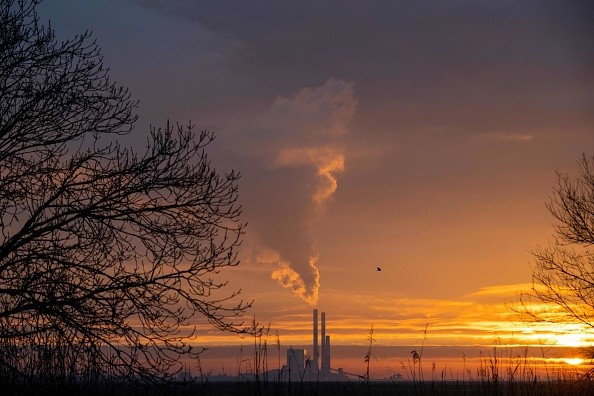The recent report revealed that global carbon emissions remained at record levels in 2022, noting the importance of decreasing global emissions in the future.
Global carbon emissions are also attributed to human-caused activities, including deforestation, massive burning of fossil fuels and coal consumption. The effect of uncontrolled global carbon emissions could impact the environment and humans.

Humans have contributed to the rapid CO2 concentration in the Earth's atmosphere. With the effect of global carbon emissions, National Geographic emphasized the importance of conserving and protecting forests.
The report added that forests are crucial as carbon sinks in storing CO2. Meanwhile, both lands and oceans contribute to storing carbon.
Furthermore, countries' commitment to reducing global carbon emissions is important to slow down climate change and CO2 emissions.
Global Carbon Emissions
A recent Global Carbon Project report showed that this year's global carbon emissions did not decrease but remained at record levels.
While global carbon emissions slowed, the report emphasized the need to decrease emission levels rapidly.
The recent report revealed that global fossil fuel emissions could increase by 1.0%, adding that 2022 projected 40.6 billion tons of global carbon emissions. On the other hand, deforestation in 2022 is expected to reach 3.9 3.9 GtCO2.
The urgency of reducing global carbon emissions is crucial to limit the global warming effect.
In addition, the report revealed that some major carbon emitters recorded an increase and decrease.
- Carbon emissions are expected to fall in the EU at 0.8% and China at 0.9%
- Meanwhile, the report noted that an increase in carbon emissions could occur in the U.S. at 1.5% and India at 6%.
Part of the initiative is to achieve zero carbon emissions by 2025, which commitment of countries is crucial to reduce the carbon emission of about 1.4 GtCO2 yearly consistently.
The research team explained that there is a need to decrease global carbon emissions, adding that the increase in fossil emissions would require a rapid and consistent decline.
Furthermore, the study's lead, Professor Pierre Friedlingstein, explained that meaningful action is essential in limiting global warming.
The study also emphasized reforestation or restoring forests that could reduce global carbon emissions. The study urged more efforts to conserve forests and address issues of deforestation.
On the other hand, the report emphasized the commitment to clean energy and the conservation of trees globally. According to the report, Professor Corinne Le Quéré explained the significance of urgent and sustained steps to reduce global carbon emissions, which could reduce potential risks.
The increasing global carbon emissions could result in worsening global warming, which could have catastrophic consequences. Global warming has been the cause of extreme weather events, warming or rising of sea levels and melting of ice.
According to the report, the Global Carbon Budget is an initiative of an international team with over 100 scientists involved. The project looks into the carbon sinks and sources.
Related Article : Effective Climate Actions Needed Against Major Fire Threats to Global Forests, Research Shows
For more similar stories, don't forget to follow Nature World News.
© 2026 NatureWorldNews.com All rights reserved. Do not reproduce without permission.





